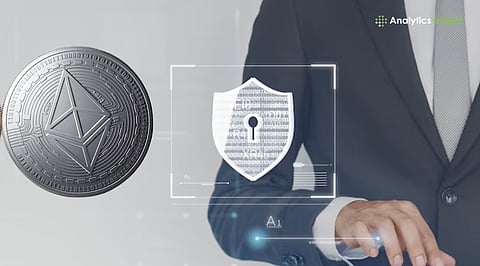

KYC verifies user identities on crypto exchanges, preventing fraud and ensuring regulatory compliance globally.
Completing KYC unlocks higher trading limits, advanced tools, staking options, and fiat currency transactions.
While KYC improves security, users must balance verification with privacy and potential data vulnerability risks.
The constantly expanding crypto world has made security and regulatory compliance major concerns. To address these issues, crypto exchanges implement several key mechanisms collectively called KYC, or Know Your Customer. KYC is one of the most-discussed and crucial concepts to make sure that transactions are safe and legal.
KYC is the verification process that confirms a user's identity to an exchange or financial institution. While traditional banking does this internally, crypto uses it for two reasons: to prevent fraud and to comply with regulations.
When you sign up for a cryptocurrency exchange, you may need to provide your full name, birth date, location, and a government-issued ID, such as a passport or driver's license. Besides, some exchanges might want a selfie or a video for facial recognition. The purpose of these checks is very simple: crypto exchanges want to be sure that the users on their platforms are really the people that they say they are.
Besides, this will not only help stop theft but also discourage illegal activities such as money laundering, financing of terrorism, and other fraudulent transactions.
Also Read: Best Crypto Wallets Without KYC in 2024
Many countries have implemented strict regulations regarding cryptocurrency trading. The rationale behind these regulations relates to preventing financial crimes. For instance, exchanges operating in jurisdictions that support AML/CTF laws must demonstrate compliance.
KYC is the primary means by which exchanges fulfill these obligations and maintain their authorizations. In the absence of KYC, an exchange could thus suffer legal repercussions or be closed down.
KYC also protects both the user and the platform from fraudulent actions. By verifying identities, exchanges reduce the risk of account takeovers, scams, and hacking attempts. Users are more likely to trust trading on platforms that prioritize security measures.
Exchanges may limit deposits, withdrawals, or trading volume until users have completed KYC. Higher limits and additional features are available to those with complete verification: advanced trading tools, staking opportunities, and fiat currency deposits.
While KYC improves security and compliance, it raises privacy concerns. Users trust exchanges with sensitive private information, which is quite vulnerable if the platform is hacked or mismanaged.
Indeed, some decentralized exchanges and privacy-focused crypto platforms allow trading without KYC; however, the associated risks and regulatory uncertainties remain substantial.
Also Read: Top UAE Banks Supporting Crypto and Blockchain Transfers
KYC in crypto is not a mere formality; instead, it is an essential step towards establishing the legitimacy and security of cryptocurrency deals. Exchanges request your ID and personal information only to protect themselves, their users, and to comply with global financial standards. It may feel intrusive at times, but KYC helps create a safer, more trustworthy crypto ecosystem.
1. What is KYC in cryptocurrency?
KYC, or Know Your Customer, is a verification process used by crypto exchanges to confirm user identities, prevent fraud, and comply with global regulations.
2. Why do crypto exchanges require my ID?
Exchanges request ID verification to ensure users are legitimate, prevent money laundering and fraud, and comply with Anti-Money Laundering (AML) and Counter-Terrorism Financing (CTF) laws.
3. Is completing KYC mandatory for all crypto platforms?
Most centralized exchanges require KYC for account verification and higher limits, but some decentralized exchanges may allow trading without KYC, though with increased risks.
4. What documents are needed for KYC verification?
Commonly required documents include government-issued ID, proof of address, and sometimes a selfie or short video for facial verification.
5. Are there privacy risks associated with KYC in crypto?
Yes, sharing personal information carries privacy risks if the exchange is hacked or mismanaged, making it important to trust reputable platforms.
Join our WhatsApp Channel to get the latest news, exclusives and videos on WhatsApp
_____________
Disclaimer: Analytics Insight does not provide financial advice or guidance on cryptocurrencies and stocks. Also note that the cryptocurrencies mentioned/listed on the website could potentially be risky, i.e. designed to induce you to invest financial resources that may be lost forever and not be recoverable once investments are made. This article is provided for informational purposes and does not constitute investment advice. You are responsible for conducting your own research (DYOR) before making any investments. Read more about the financial risks involved here.
